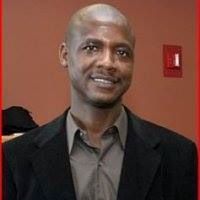 by Alagi Yorro Jallow.
by Alagi Yorro Jallow.Fatoumatta: The international election observer mission, which comprises members of the Carter Center and the Electoral Institute for Democracy in Africa, has deployed 47 observers throughout the country. Their mission will follow the day of the voting. However, it will also follow the transmission, the compilation, the proclamation of the provisional results, and the announcement of the election’s provisional results, which will take place in the Constitutional Council, so they will be in the country until the end of the electoral process and they start safari tours abode in five-star hotels with good beaches and on enjoy political tourism.
The surprise winners in African elections are the International Election Observers and so-called election monitors including the global media, not a democracy, the rule of law, or the independent judiciary; the idea that election disputes and grievances are not settled in Africa but it remains a puzzle and is not nonviolently settled in appropriate constituted election petition courts because international observers and monitors in complicity to global media usually prematurely in many instances validate election outcomes before the conclusion of the election process. Despite overwhelming evidence of election fraud and massive riggings, the powerful always write their own rules. Furthermore, the beneficiaries and winners of an election in Africa are international observers legitimizing despots and impunity for corruption (of course) and, in a big way, the International Election Observers Industry that lends celebrity credibility to corrupt governments.
Fatoumatta: It is time to rethink election monitoring as a sustained community-based activity, not a one-day, five-star hotel celebrity round-up. The international media must understand that election observers goofed. It is such a shame that International election observers are always quick to make a reckless conclusion about Africa’s elections being free and fair. In contrast, they know African politicians epitomize all shades of corruption—shame on them. This unprecedented Supreme Court decision to nullify the Kenyan presidential election in 2017 lays out the overwhelming evidence that every general and presidential election in the multiparty era, elections in Africa had been stolen except the Gambian Presidential Elections, December 1, 2016, that ended 22 years of dictatorship, without the presence of international observers in the Gambia.
Fatoumatta: Concerns about electoral violence in the West African nations of Guinea Conakry and Ivory coast increased political vandalism and violence in recent weeks, after demonstrations and attacks in different regions. President Alpha Conde and Alassane Ouattara, who first came to power after the disputed election, left several hundreds of people dead in its aftermath, are now seeking a third term in office. Both Conde and Ouattara maintains that they can serve a third term because of changes to the country’s constitution. However, their opponents consider them their candidacy as illegal, and a state captured coup d’e tat. Recently in Guinea Conakry, monitors from the African Union and the West African regional bloc have said Guinea’s recent presidential election was appropriately conducted amid rising tensions and irregularities of official results released.
Fatoumatta: Legal declarations can bequeath power, but only people can offer legitimacy. Moreover, it cannot be coerced out of them, whether through beatings, intimidation, or even murder. It can only be given voluntarily. The election is just a way of attempting to entice it out of them. However, for too long, African governments have violated the bargain too long and tried to subvert the people’s will by stealing elections.
 by Alagi Yorro Jallow.
by Alagi Yorro Jallow.
 by Alagi Yorro Jallow.
by Alagi Yorro Jallow.
 by Alagi Yorro Jallow.
by Alagi Yorro Jallow.
Ma sha Allah great and thanks for sharing